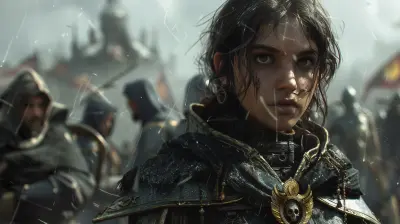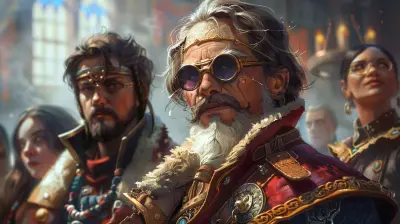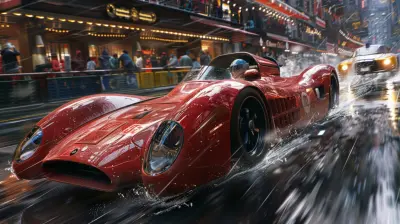The Influence of Mythology on Video Game Characters
17 June 2025
Let’s be honest — mythology is just flat-out cool. It’s got gods, monsters, epic battles, mysterious prophecies, and stories that have lasted for thousands of years. So, it's no surprise that video game developers have tapped into these ancient tales to breathe life into iconic characters. From Greek gods swinging mighty hammers to Japanese yokai lurking in the shadows, mythology has rooted itself deeply in the DNA of gaming.
But have you ever wondered just how much mythology shapes your favorite game characters? Let’s dive deep into the influence of mythology on video game characters — the who, the why, and the wow.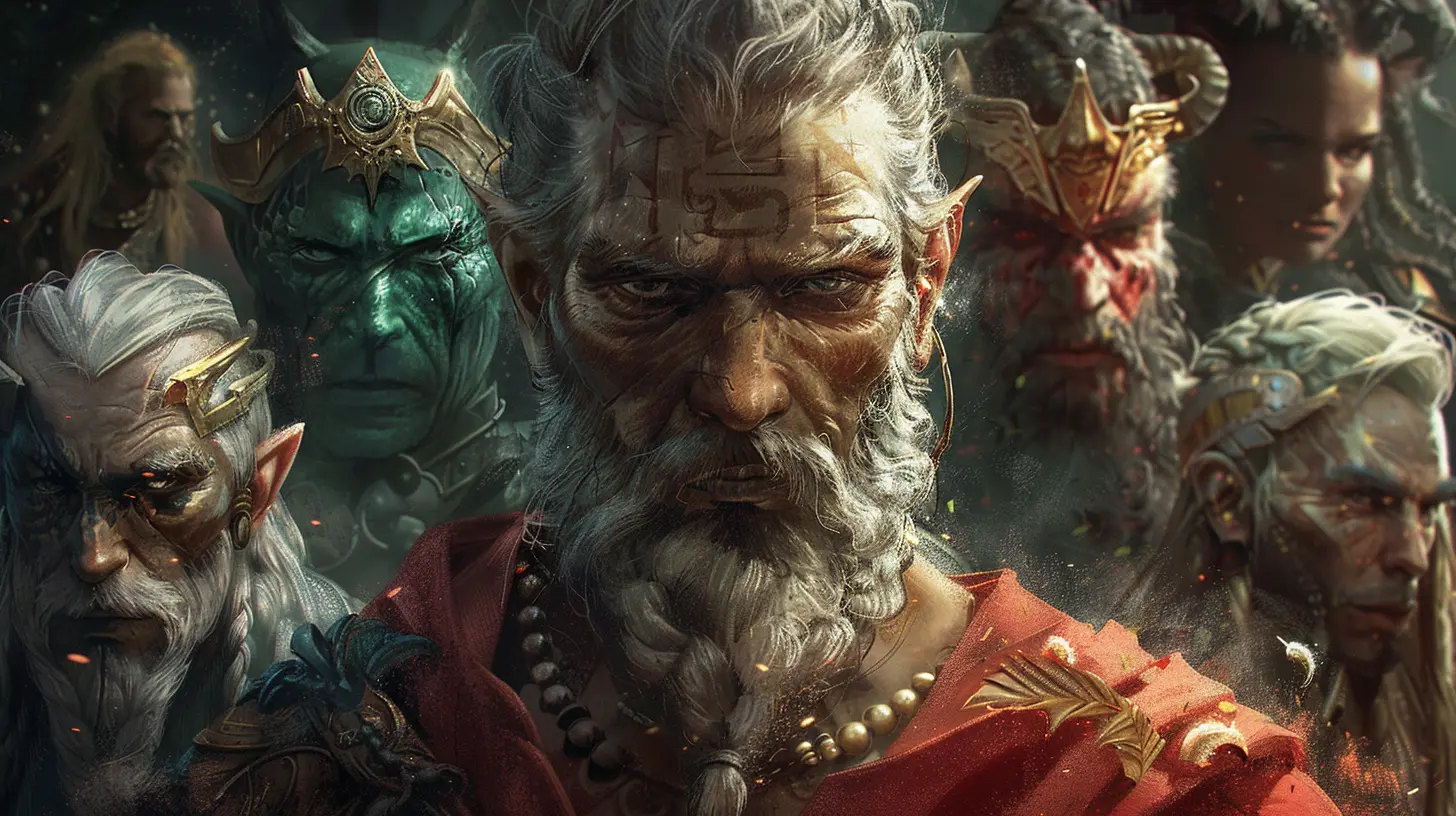
Why Mythology Works So Well in Video Games
Before we talk about specific characters, let’s figure out why mythology is such a perfect match for video games.Timeless Stories Meet Interactive Worlds
Mythology is full of timeless themes — power, betrayal, love, sacrifice, revenge. These are the same emotional engines that drive the best video game narratives. Developers can borrow the drama and grandeur of mythologies and add interactivity, making players feel like they're living the myth instead of reading it.Built-In Lore and Worldbuilding
Let’s be real — creating a brand-new universe from scratch isn't easy. Mythology offers ready-made worlds with rich histories, complex pantheons, and built-in conflicts. It’s like having a blueprint to build something extraordinary. With a little twist here and there, developers can spin an age-old legend into something fresh.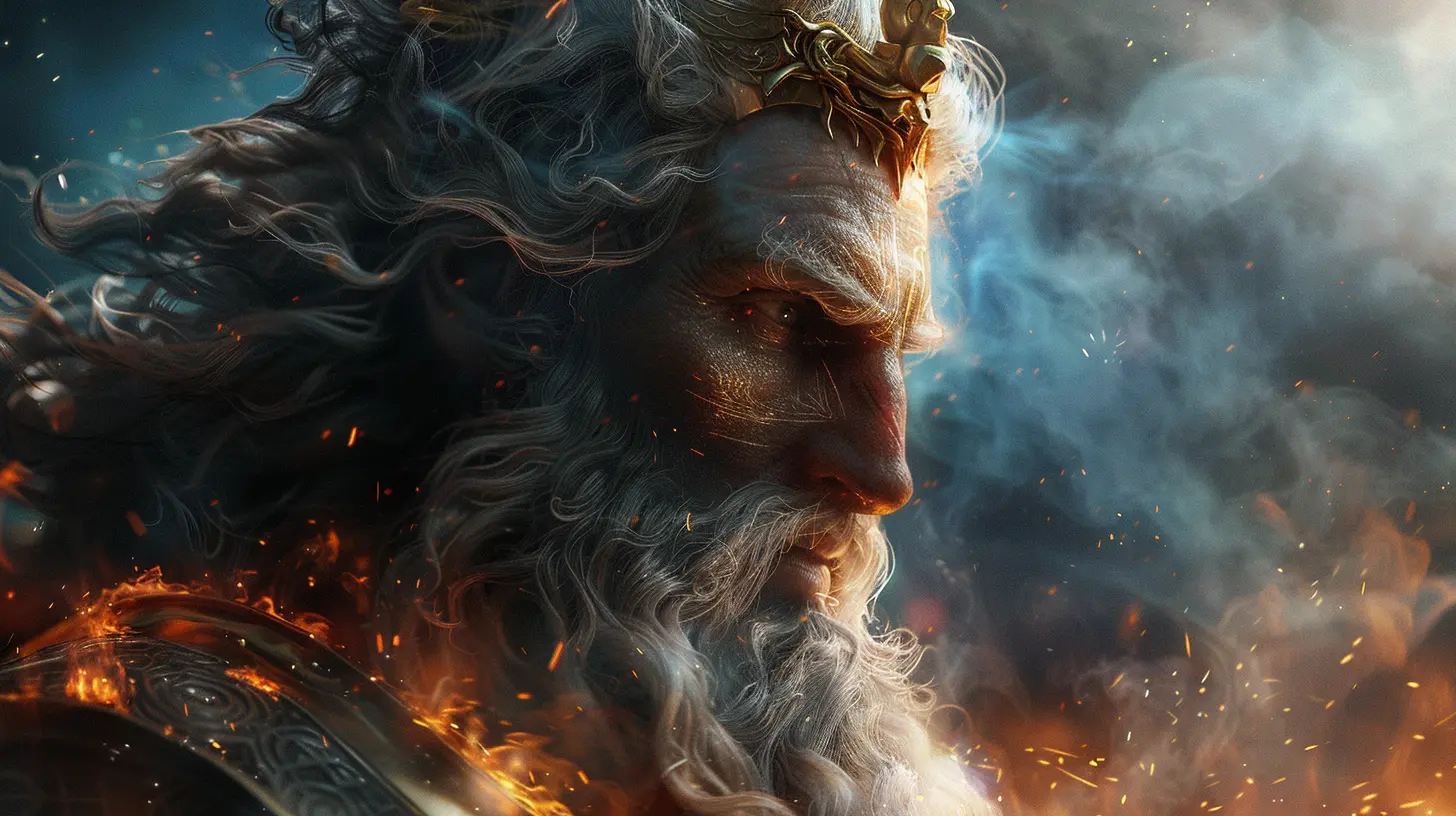
God-Like Inspirations: Characters Drawn from Myth
Now, let's get into the good stuff — the characters. Here are some of the most iconic video game characters whose roots trace back to ancient myths.1. Kratos from God of War – The Embodiment of Greek Rage
Ah, Kratos. The Ghost of Sparta. If you’ve played any of the God of War titles, you probably know he's one of the most myth-heavy characters in gaming. Kratos is loosely based on Greek mythology but with a very modern twist. Though there isn’t a direct character named Kratos in Greek mythology like the one in the game, there is a minor god known as Kratos (the personification of strength). Santa Monica Studio took that nugget and ran with it.He battles gods like Ares, Zeus, and Hades — not to mention monsters like Medusa and the Hydra. The newer games even shift gears into Norse mythology, with Kratos squaring off against Thor and Odin. It's like mythology class, but with way more blood and axes.
2. Link from The Legend of Zelda – A Hero Rooted in Mythic Archetypes
Okay, Link might not scream "mythology" at first, but let’s dig a little deeper.He fits the classic "Hero's Journey" archetype, which Joseph Campbell linked back to mythological narratives from across the world. Think of him like a modern-day Perseus or a young King Arthur. He’s chosen, often silent, and thrust into an epic battle between good and evil, usually involving magical artifacts, ancient prophecies, and literal goddesses.
The Triforce? It mirrors concepts from Eastern and Western myths — power, wisdom, and courage representing divine balance. It’s all there, just in a Hylian package.
3. Amaterasu from Ōkami – Japanese Myth in Full Bloom
Ever played Ōkami? It's a stunning game where you play as Amaterasu, the Japanese sun goddess, in the form of a beautiful white wolf. This game isn’t just inspired by mythology — it is mythology.Characters like Susano, Orochi, and Tsukuyomi all come straight from the Kojiki (Japan’s oldest historical record). The world is dripping with Shinto imagery and folklore, from the creatures you fight to the sacred brush techniques you use. It’s like someone painted a Japanese scroll and turned it into a playable fairytale.
4. Odin, Loki, and Thor – The Norse All-Stars in Assassin’s Creed: Valhalla and God of War
Norse mythology has had a massive glow-up in recent years. Games like Assassin’s Creed: Valhalla and the newer God of War entries brought these ancient gods back into the spotlight.In Valhalla, players explore the Viking belief system, diving into myths involving the Nine Realms, Ragnarok, and the Allfather Odin. Even Thor’s hammer, Mjolnir, makes an appearance — and yes, it hits hard.
Meanwhile, in God of War Ragnarök, characters like Loki (in this case, Atreus) and Freya are given deep, emotional backstories. It’s not just about fighting gods — it's about understanding them.
5. The Persona Series – Jung Meets Japanese Mythology
Persona is a series that blends Jungian psychology with both Western and Eastern mythology. The "Personas" that players summon are often derived from mythological and spiritual figures — from Greek gods like Thanatos to Hindu deities like Vishnu.The series doesn’t just use these figures for flair — it ties their symbolic meanings into the story’s emotional themes. It's smart, stylish, and surprisingly educational.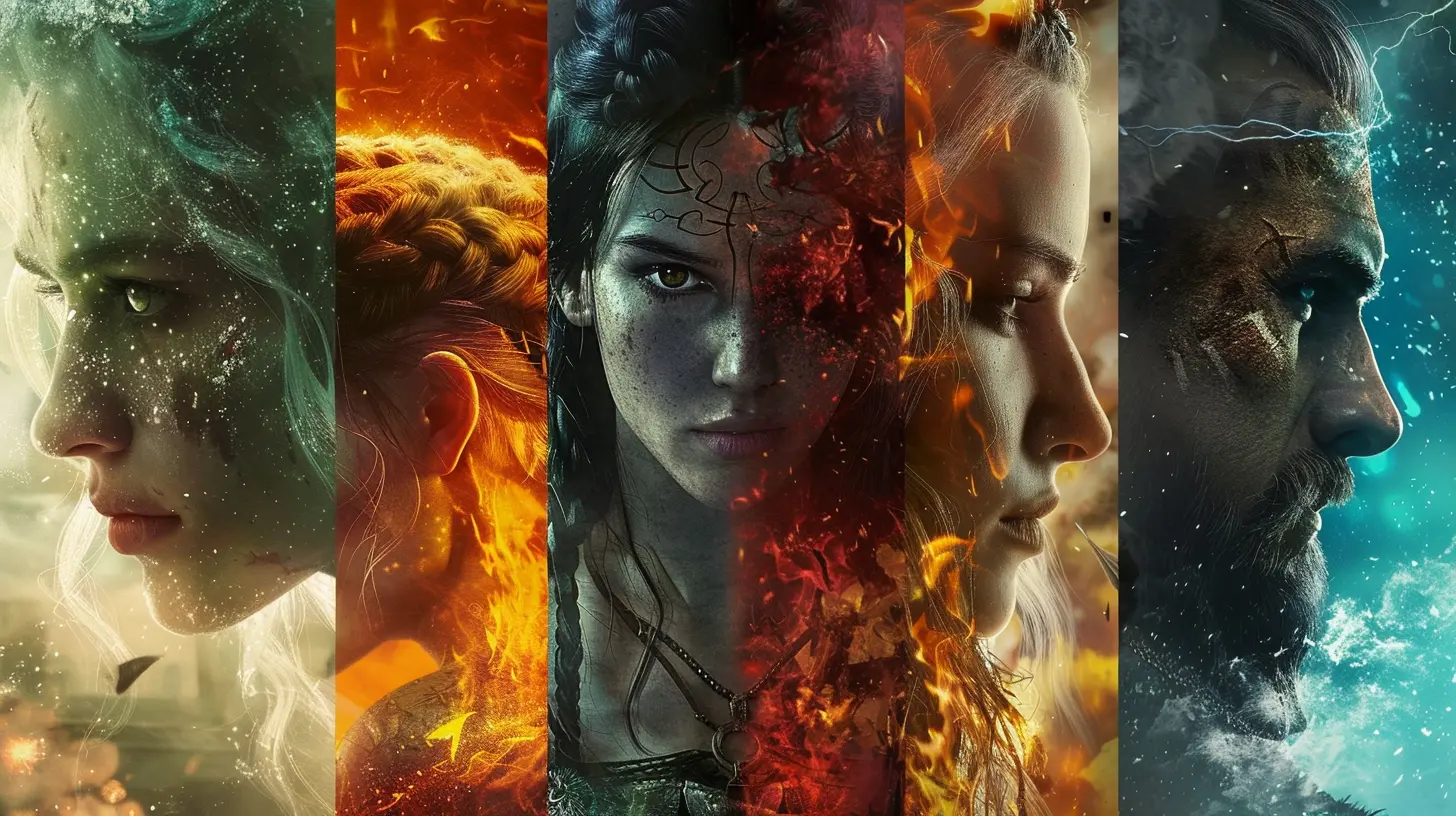
The Beauty of Borrowing: How Games Reimagine Myths
So how do developers take these ancient stories and turn them into something new?Modernization of Ancient Concepts
Take Hades from Hades by Supergiant Games. Ever imagined the Greek underworld as a rebellious teenager’s escape plan? This game reimagines the god of the dead as a hard-ass father, and gives his son, Zagreus, a witty, relatable personality. Greek tragedy has never been this fun — or this fast-paced.Gender Swaps and Role Reversals
Some games flip the script completely. You might see male gods reimagined as female characters or demons turned into allies. This not only adds freshness to the narrative but also questions traditional storytelling. Pretty cool, right?Fusion of Myths
Who says you have to stick with just one mythology? Games often blend myths from different cultures to add complexity. Smite, for example, throws gods from Greek, Norse, Hindu, Egyptian, and even Polynesian mythology into a battle arena. It’s a divine showdown — and everyone’s invited.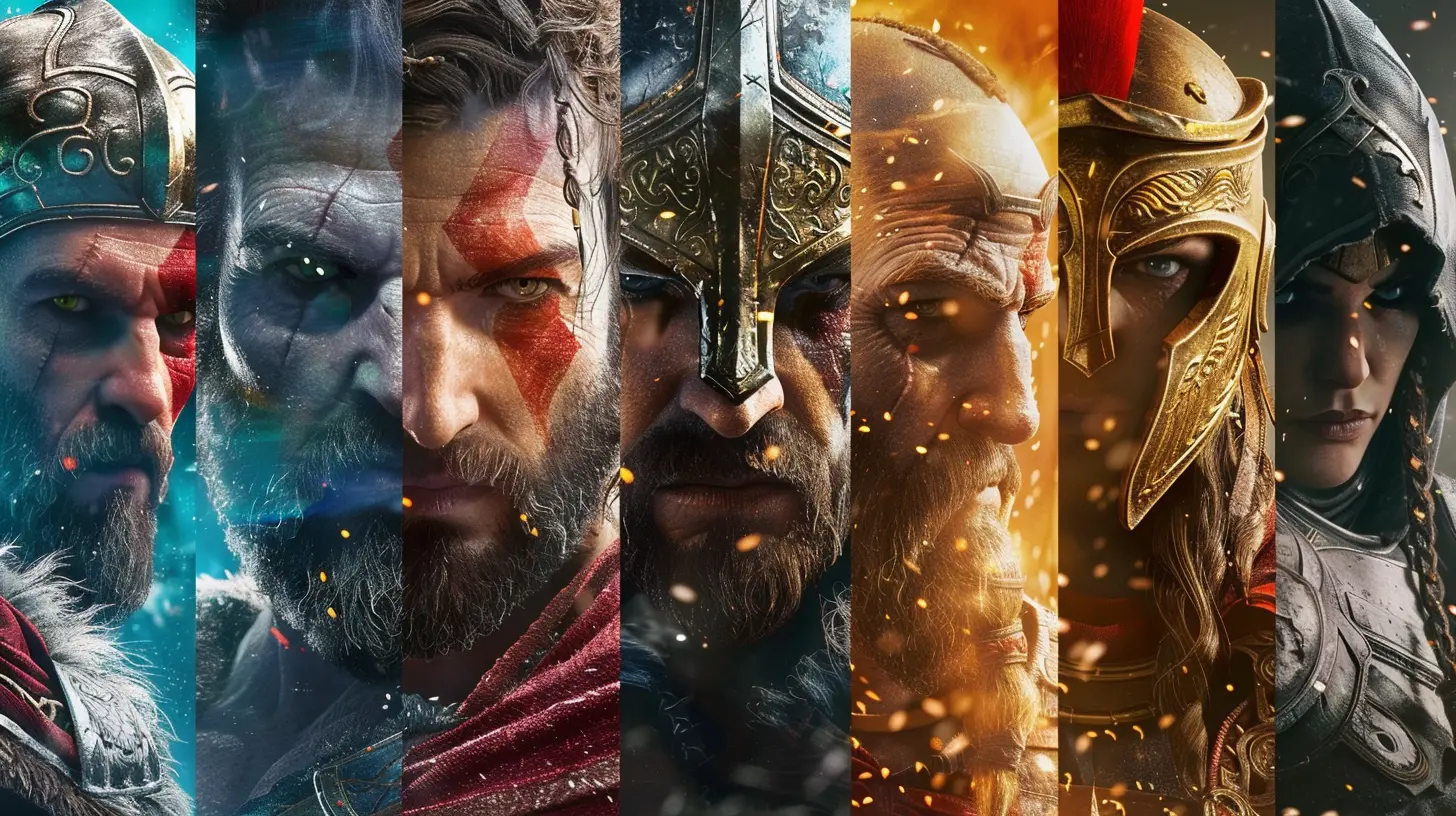
Why We Love Myth-Inspired Characters (Even If We Don’t Realize It)
Let’s face it — mythological characters are larger than life. They’ve got powers, flaws, destinies, and they usually come with a pretty tragic backstory. Sound familiar? That’s most AAA video game protagonists.They Make Us Feel Epic
When you step into the shoes of a god or a demi-god, or even someone chosen by prophecy, the stakes suddenly feel massive. It gives weight to your actions. You’re not just button-mashing — you’re fulfilling fate.They Tap into Something Deep
Myths have survived for generations for a reason. They speak to deep human truths and questions we all wrestle with — identity, purpose, the struggle between good and evil. When games tap into these themes, they hit harder.Conclusion: Mythology Is Gaming’s Secret Sauce
So, the next time you’re hacking away at a cyclops or arguing with a celestial god, remember — you’re part of a much bigger story, one that’s been unfolding for thousands of years. Game developers aren’t just creating new worlds; they’re remixing ancient ones, adding high scores and side quests along the way.Mythology gives games a soul. It connects us to the past while letting us imagine wild new futures. And most importantly, it makes for some seriously unforgettable characters.
Game on, my fellow myth-hunters.
all images in this post were generated using AI tools
Category:
Video Game CharactersAuthor:

Francesca West
Discussion
rate this article
2 comments
Isabella Peterson
This article compellingly explores how mythology enriches character development in video games, offering players deeper connections to their heroes. Understanding these influences enhances our appreciation of storytelling in the gaming universe.
June 18, 2025 at 3:51 AM

Francesca West
Thank you for your thoughtful comment! I'm glad you found the exploration of mythology's impact on character development compelling. It truly does deepen our connection to the stories we experience in games.
Isolde Cook
Mythology profoundly shapes video game characters, providing rich narratives and archetypes that resonate with players. These elements enhance storytelling, deepen engagement, and create memorable experiences across diverse gaming genres.
June 17, 2025 at 2:53 PM

Francesca West
Thank you for your insightful comment! I completely agree—mythology adds depth and resonance to video game narratives, enriching player experiences across various genres.
